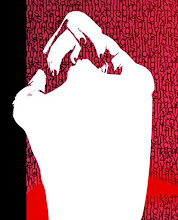Zimbabwe's inflation rate surges to 231,000,000%
A Z$100bn note - they were worth less than 8p when they were scrapped in August. Photograph: Philimon Bulawayo/Reuters
Zimbabwe's official inflation rate has surged to 231,000,000% as the opposition appealed to South Africa's former president, Thabo Mbeki, to rescue the historic power-sharing deal he brokered last month.
With the economy continuing its rapid collapse and no end in sight to the political deadlock, the World Food Programme today launched an appeal to feed 5 million Zimbabweans. It said that more than 80% of the country's population was living on less than £1 a day and nearly half is chronically malnourished.
The latest official inflation rate, for July, is twenty times higher than a month earlier. Independent economists, who have accurately estimated the true rate in the past, say that inflation this month will run into the trillions.
That has forced the government to allow shops this week to begin accepting US dollars and South African rand because the Zimbabwean dollar is now all but worthless.
The latest inflation figures will increase pressure on the country's president, Robert Mugabe to stop stalling over the composition of a new power-sharing government with the prime minister designate, Morgan Tsvangirai. The president is demanding security ministries such as the army and police as well as the finance portfolio even though foreign donors have made it clear that there will be no aid to revive the economy unless that falls under Tsvangirai's control.
Tsvangirai said today that the talks were deadlocked and called for Mbeki to intervene. "We have asked him to come over and he has said he will come over," he said.
But Tsvangirai said he retained confidence in the agreement. "We are confident about the potential of the deal," he said. "In the process of implementation, we have hit an impasse but not on fundamental contents of the deal.
"Unfortunately no progress has been made ... to bring the Zimbabwean people to the beginning of the path of recovery. Instead the economic crisis has worsened. We now live in an environment characterised by hunger, starvation, and we are days away from seeing people dropping dead on the streets."
Mugabe only signed what he called a "humiliating" agreement surrendering many of his powers because his government has no solution to the problems afflicting Zimbabwe, and that has not changed.
Its attempt to curb inflation with enforced price reductions only drove trade on to the black market.
The central bank removed 10 zeros from the national currency in August after rapid devaluation forced it to print Z$100bn notes that were worth only about 8p on the street when they were scrapped.
But the new currency continued the free fall as it dropped from about Z$100 to the pound two months ago to Z$2m to the pound before the government blocked electronic bank transfers last week.
Severe cash shortages, because the government cannot afford to print bank notes to keep pace with inflation, had meant that many people could at least use bank accounts as a means of payment using a parallel market rate. But that lifeline has now been cut.
The central bank said the transfers were used for illicit exchange deals and to overprice goods. "We have no option but to take this drastic measure in order to maintain sanity in the financial system," said the central bank governor, Gideon Gono.
Ref: The Guardian, UK
Subscribe to:
Post Comments (Atom)


No comments:
Post a Comment